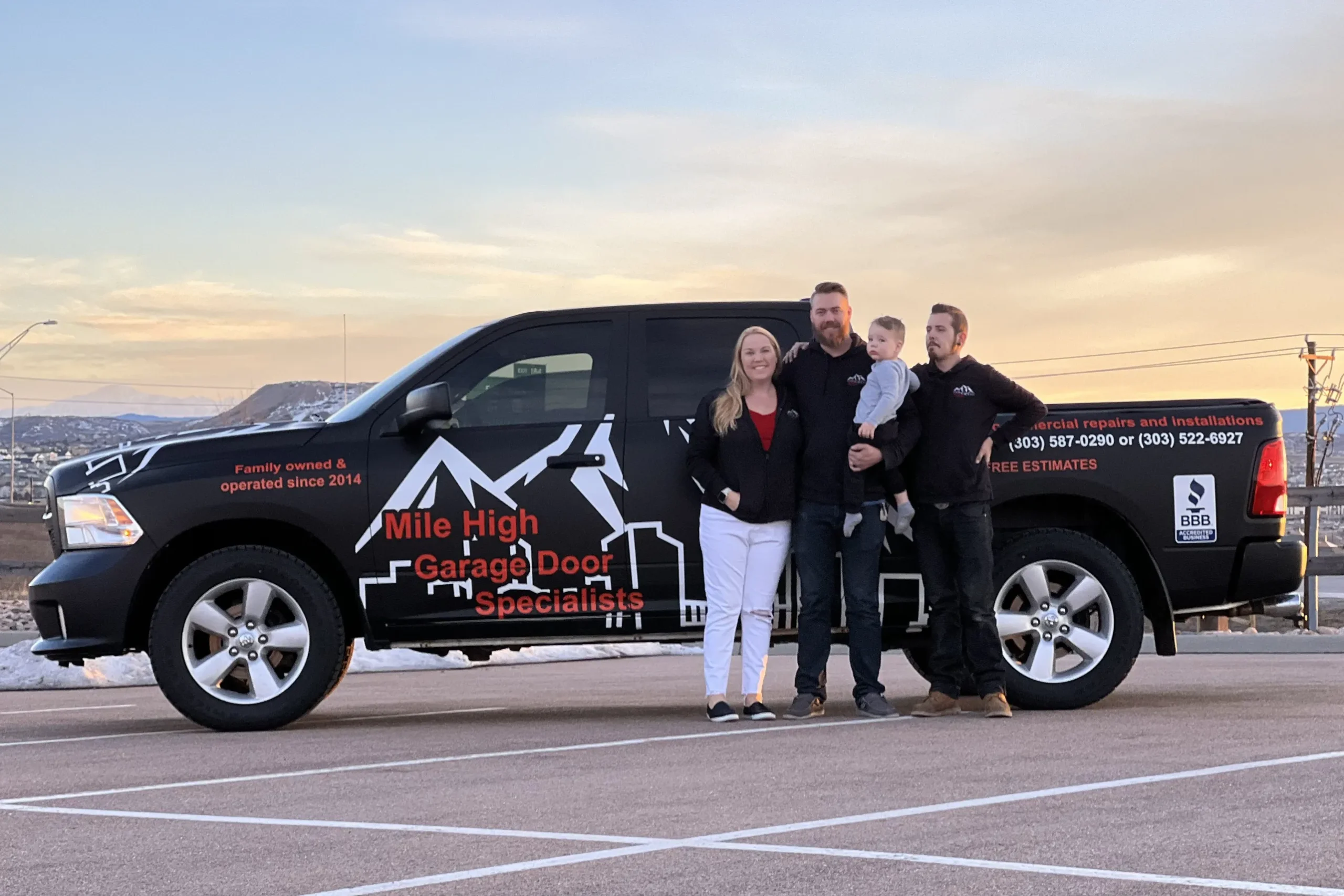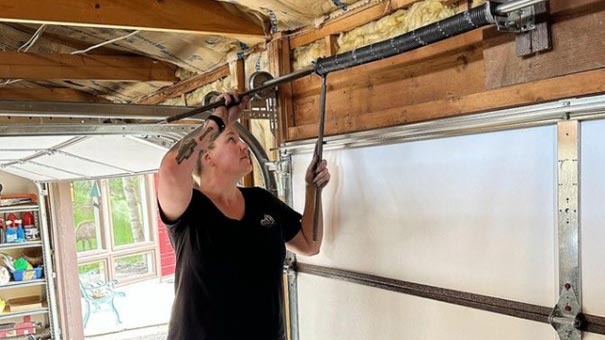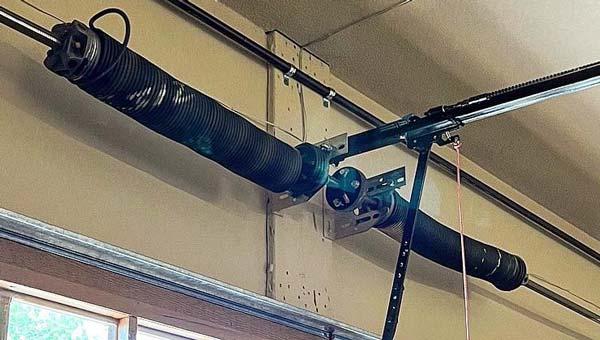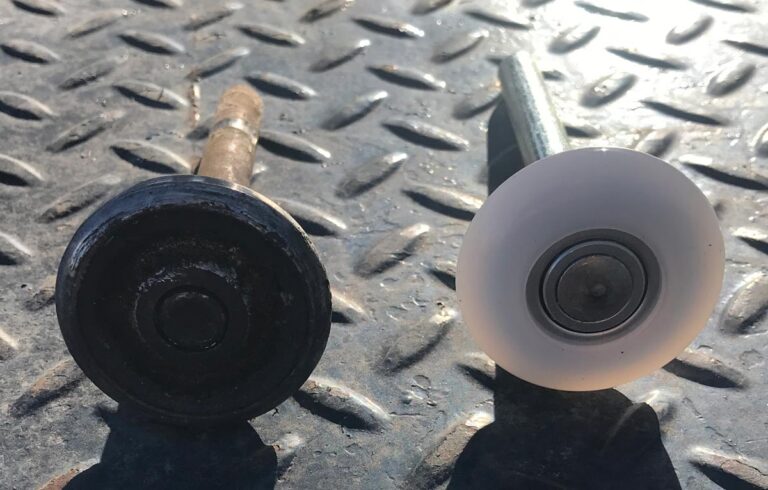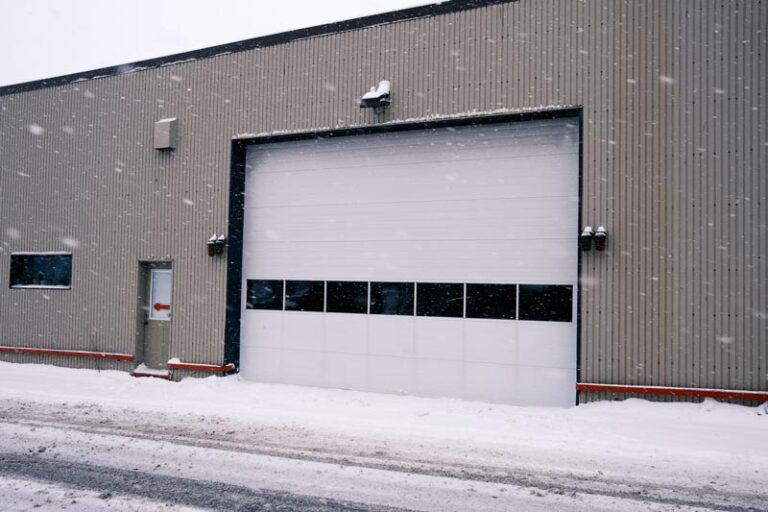Quick Guide Overview
⚡ Reading Time: 8 minutes
⚠️ Safety Level: Extremely High Risk
🚨 Important: Spring repair should ALWAYS be performed by professionals
When it comes to garage door components, springs are the most critical—and dangerous—part of your system. From Broomfield to Parker, garage door professionals respond to more emergency calls about spring failures than any other issue.
Understanding Garage Door Springs
There are two main types of garage door springs you’ll find in homes across the Denver metro area:
| Spring Type | Location | Lifespan | Common Use |
|---|---|---|---|
| Torsion | Above door | 15,000-20,000 cycles | Most modern doors |
| Extension | Side tracks | 10,000-15,000 cycles | Older/lighter doors |
The Critical Role of Springs
Think of your garage door springs as the muscles of your system. In fact, they do most of the heavy lifting:
- A typical garage door weighs 150-200 pounds
- Springs provide 95% of the lifting power
- They balance the door’s weight perfectly
- Without springs, your opener can’t function
- They ensure smooth, controlled movement
⚠️ DANGER: Springs store massive amounts of energy. From Westminster to Aurora, emergency rooms treat numerous injuries from DIY spring repairs gone wrong. Always call a professional for spring issues.
Warning Signs of Failing Springs
1. Visual Indicators
Look for these clear signs that your springs are wearing out:
- Gaps or spaces between coils
- Stretched appearance
- Visible rust or corrosination
- Broken coils
- Sagging when closed
2. Operational Signs
Living in Colorado’s climate means being especially attentive to how your door operates. Homeowners from Golden to Louisville should watch for:
- Door feels heavy to lift manually
- Uneven movement during operation
- Jerking motions
- Fast closing speed
- Loud banging noises
3. Opening and Closing Issues
If you notice any of these problems, especially common in older homes throughout Littleton and Englewood, contact a professional immediately:
- Door won’t stay open halfway
- Crooked movement
- Cables becoming loose
- Door slams shut
- Opener straining
The Science Behind Spring Failure
Understanding why springs fail can help you prevent premature wear. Colorado’s unique climate plays a significant role in spring longevity. Our combination of:
- Extreme temperature fluctuations
- Very low humidity
- High altitude stress
- Intense UV exposure
- Seasonal weather changes
All these factors can accelerate spring wear, particularly in areas like Morrison and Genesee, where elevation changes add extra stress.
Simple Tests You Can Perform
The Balance Test
Following these steps is safe for homeowners:
- Disconnect your opener
- Raise door halfway manually
- Door should stay in place
- If it drops or rises, springs need service
💡 Pro Tip: Highlands Ranch and Ken Caryl residents often notice spring issues first during temperature extremes when metal contracts or expands.
Life Expectancy of Springs
Several factors affect how long your springs will last:
- Daily usage
- Door weight
- Environmental conditions
- Maintenance history
- Spring quality
| Usage Level | Expected Lifespan |
|---|---|
| Light (1-2 times daily) | 15-20 years |
| Average (3-5 times daily) | 7-12 years |
| Heavy (6+ times daily) | 4-6 years |
Preventive Maintenance
While spring replacement requires a professional, these maintenance steps can extend spring life:
- Regular lubrication
- Visual inspections
- Balance checks
- Professional tune-ups
- Keeping records
Seasonal Considerations
The weather from Boulder to Castle Rock can be unpredictable. Prepare your springs for:
Spring/Summer:
- Check for winter damage
- Apply fresh lubrication
- Listen for new noises
- Schedule inspections
Fall/Winter:
- Prepare for cold
- Check balance
- Lubricate thoroughly
- Monitor performance
Emergency Response Plan
If you hear a loud bang or your door won’t open:
- Stop using the door immediately
- Keep everyone away
- Disconnect the opener
- Call a professional
- Document the issue
| 🚨 Emergency Signs | Immediate Action |
|---|---|
| Loud bang/snap | Stop all operation |
| Door won’t lift | Call professional |
| Visible damage | Keep area clear |
| Crooked door | Document condition |
Cost Considerations
Throughout the Denver metro area, spring replacement costs typically range:
- Torsion spring replacement: $200-400 (ask about our specials)
- Extension spring replacement: $150-300
- Full system upgrade: $400-700
- Emergency service: Additional $50-150
Professional Service Expectations
When you call for service, expect:
- Safety inspection
- Spring measurement
- Cycle rating discussion
- Maintenance recommendations
- Additional safety feature options
💡 Pro Tip: For homes in areas like Cherry Creek or Washington Park, consider upgrading to higher-cycle springs if you use your garage frequently.
Frequently Asked Questions
Q: Can I operate my door with one broken spring?
A: No. This puts dangerous stress on the remaining spring and door components.
Q: How often should springs be inspected?
A: Professional inspection is recommended annually, more frequently in areas with extreme weather like Dakota Ridge or Green Mountain.
Q: Should I replace both springs if one breaks?
A: Yes. Springs wear equally, so replacing both ensures balanced operation.
Conclusion
Garage door springs are crucial for safe operation but can be extremely dangerous when failing. Whether you’re in Arvada or Wheat Ridge, maintaining awareness of spring condition and knowing when to call a professional is essential for your safety.
Next Steps
- Schedule professional inspection
- Document spring installation date
- Monitor door operation
- Keep maintenance records
- Save emergency contact numbers
Need immediate assistance with garage door springs? Our certified technicians serve the entire Denver metro area with 24/7 emergency service for your safety and peace of mind.

